Geometry worksheets activities for Ages 3-8
7 filtered results
-
From - To
Explore our engaging Geometry worksheets designed for children ages 3-8! These activities foster early mathematical skills through fun tasks that introduce essential geometric concepts such as shapes, symmetry, and spatial awareness. Our interactive worksheets are tailored to spark creativity and critical thinking, making learning geometry an enjoyable experience. With colorful illustrations and age-appropriate challenges, your little learners will develop a strong foundation in mathematics. Perfect for home, preschool, or kindergarten, these geometry activities not only enhance knowledge but also make counting and shape recognition exciting! Start your child’s journey into the world of geometry today with our printable worksheets!
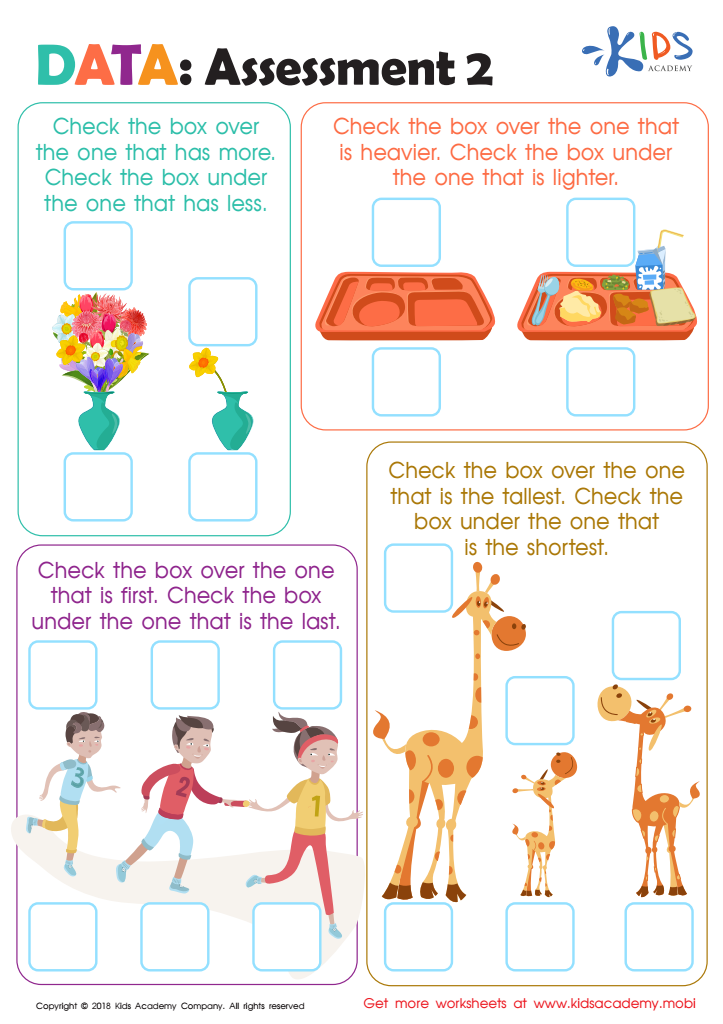

Data: Assessment 2 Worksheet
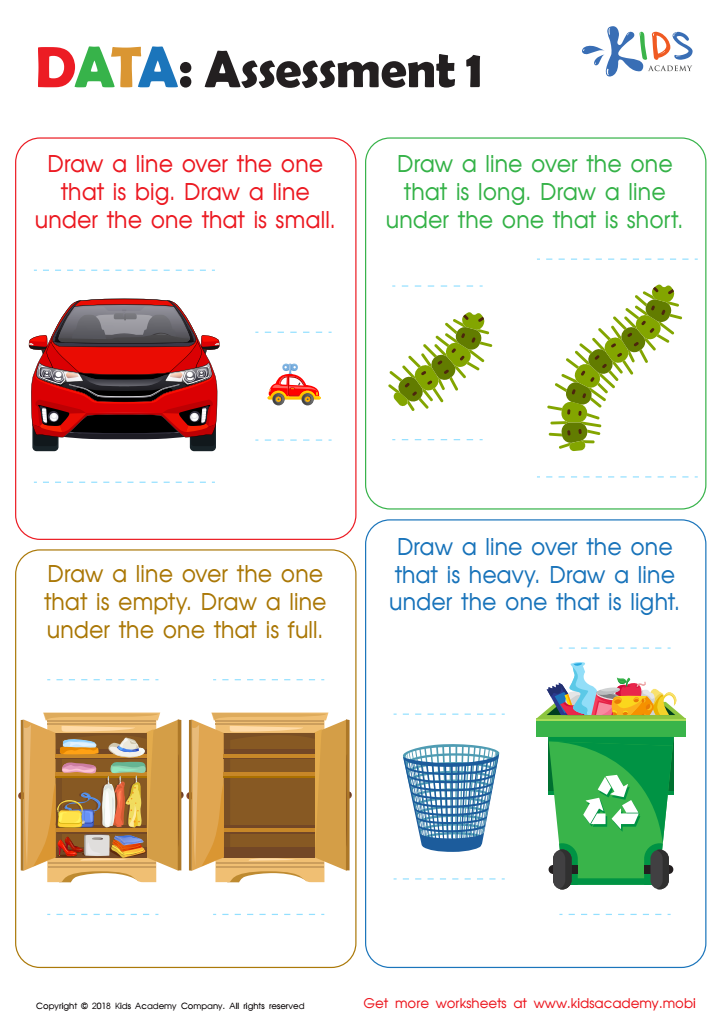

Data: Assessment 1 Worksheet
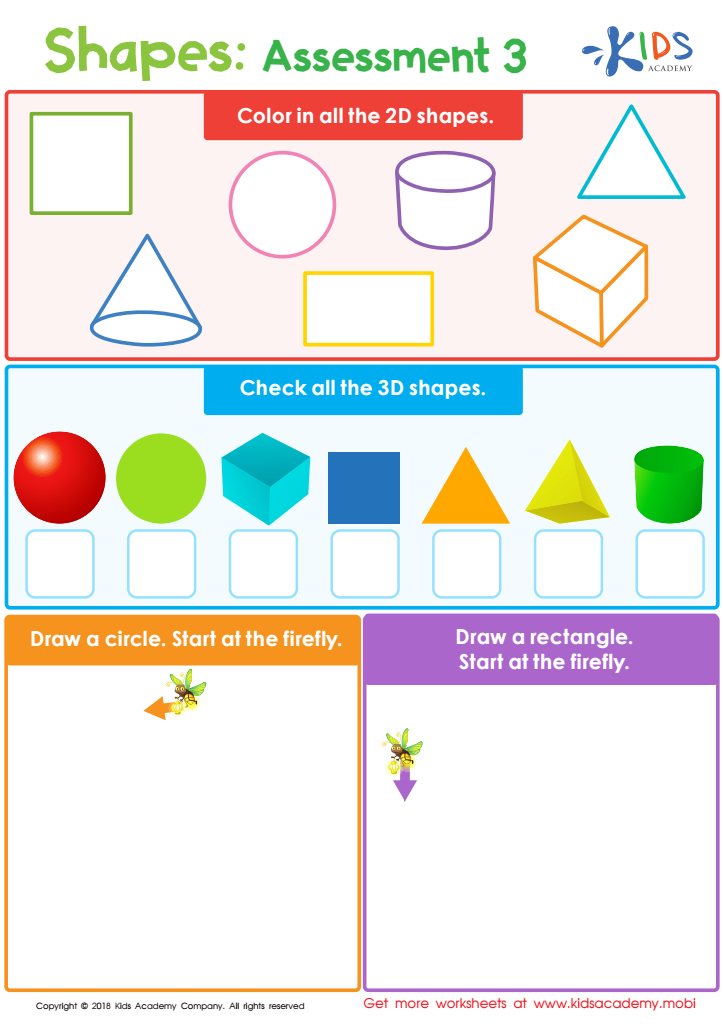

Shapes: Assessment 3 Worksheet
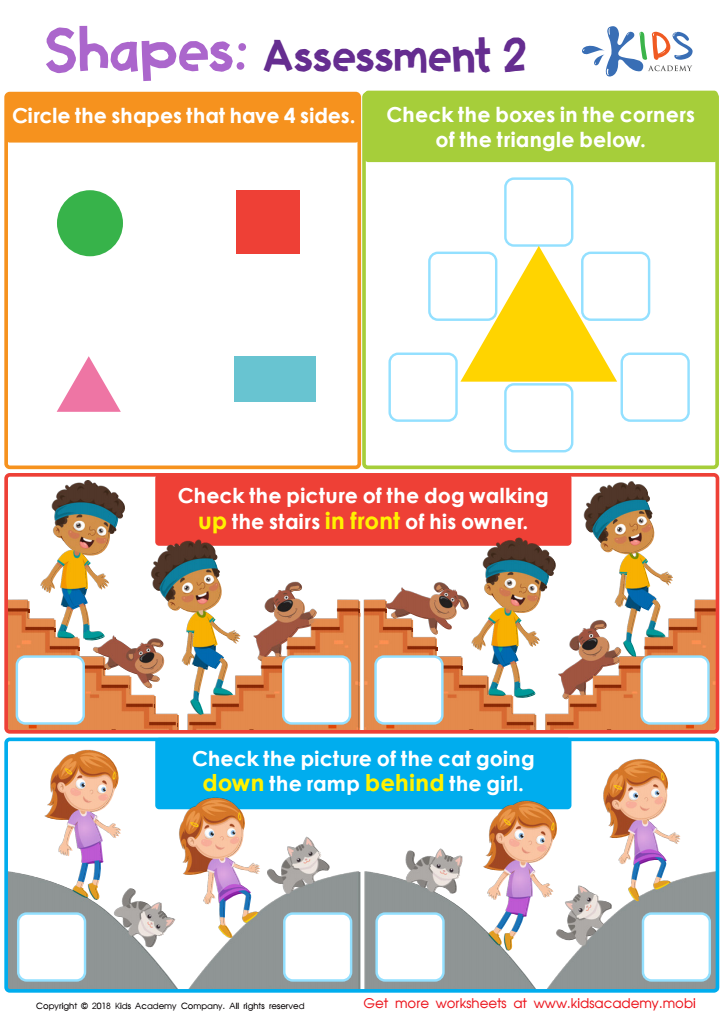

Shapes: Assessment 2 Worksheet
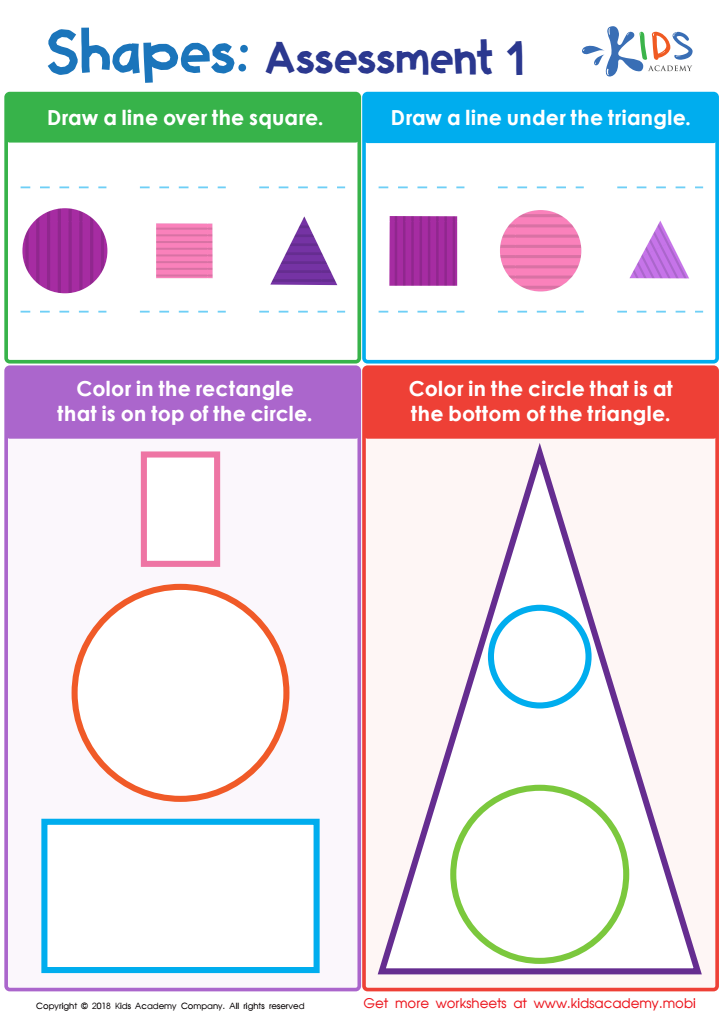

Shapes: Assessment 1 Worksheet
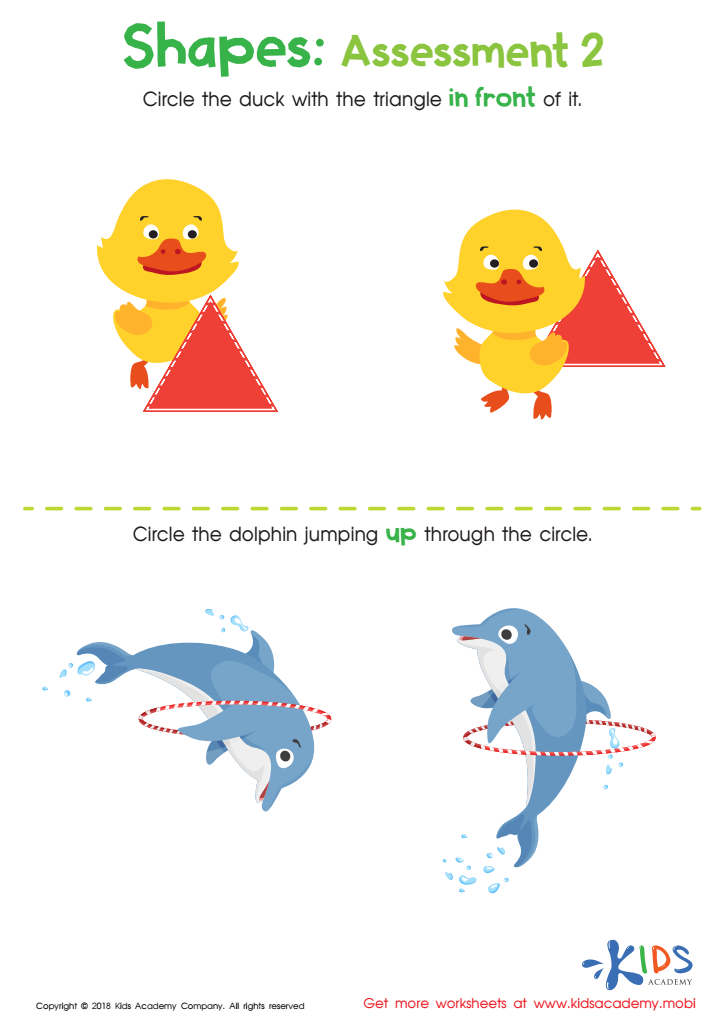

Geometry – Assessment 2 Worksheet
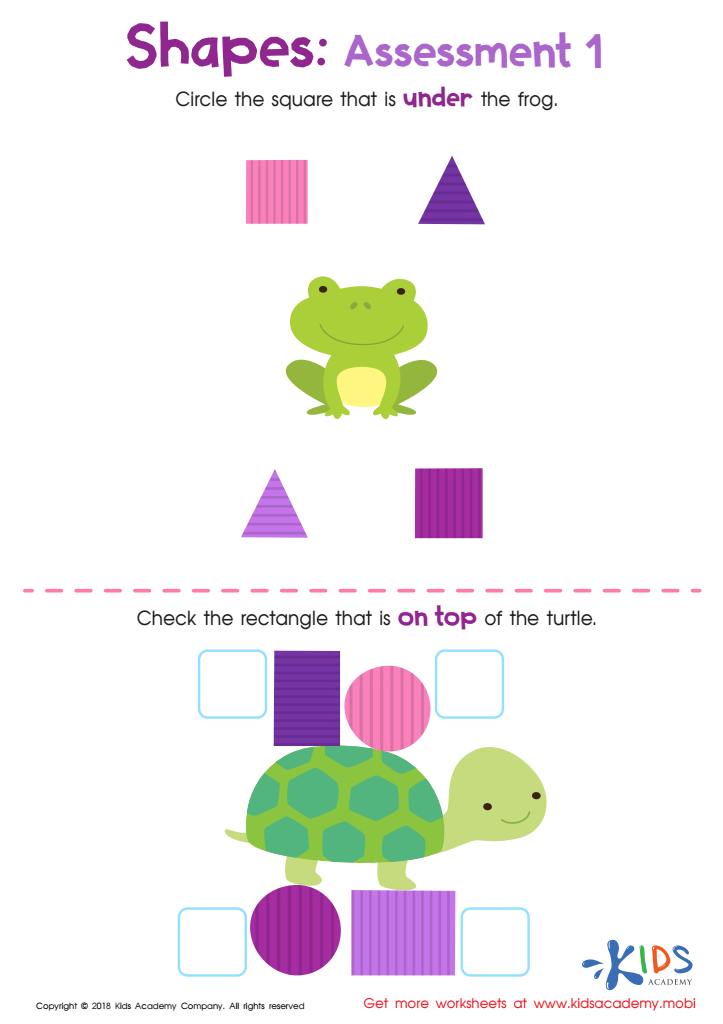

Geometry – Assessment 1 Worksheet
Geometry activities for children aged 3-8 are crucial for their early cognitive development and understanding of the world around them. At this young age, children are naturally curious and eager to explore shapes, sizes, and spatial awareness through hands-on experiences. Engaging in geometry activities fosters critical thinking and problem-solving skills, as children learn to recognize, compare, and manipulate various shapes and forms.
Moreover, geometry forms a foundational skill that supports future learning in mathematics, science, and everyday life. Recognizing shapes and understanding spatial relationships help children develop logical reasoning and enhances their ability to visualize and arrange objects. These skills are beneficial not only academically but also socially and emotionally, as collaborating on geometric activities promotes teamwork and communication.
Furthermore, engaging in geometry activities can easily be woven into play, making learning enjoyable and effective. It's an opportunity for parents and teachers to cultivate a love for math at an early age, setting the stage for lifelong learning. Overall, by incorporating geometry activities into the education of young children, we empower them with essential skills, encouraging creativity, exploration, and a deeper understanding of their environment. This investment in early education plays a significant role in shaping their future academic success.
 Assign to My Students
Assign to My Students














